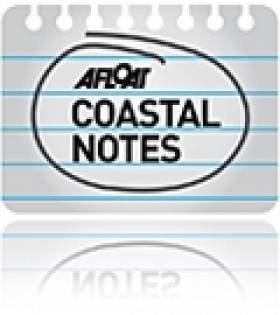Displaying items by tag: environement
'Excellent' Result for Clare Bathing Areas in EPA report
#clarebeaches – A newly published report by the EPA on Bathing Water Quality around Ireland has found that County Clare's 11 designated bathing areas were adjudged to have "Excellent Water Quality" during 2014.
The marine environment news has been described as "hugely significant and positive news" by Clare County Council in light of the newly introduced EU standards for bathing areas, deemed by the EPA to be almost twice as strict as those applied in previous years.
Bathing waters were classified into four categories, namely 'Poor', 'Sufficient', 'Good' and the newly introduced 'Excellent' category. The classification system is based on the levels of E. Coli and intestinal enterococci detected in the bathing water during the 2014 bathing season.
Clare is one of five Local Authority areas to receive "Excellent" classifications for each of its bathing areas, the others being Dun Laoghaire Rathdown, Kerry, Leitrim and Louth.
Clare's 11 bathing areas are Ballyalla Lake (Ennis), White Strand (Milltown Malbay), Ballycuggeran (Lough Derg), Cappa Pier (Kilrush), Bishopsquarter, White Strand (Doonbeg), Kilkee, Spanish Point, Lahinch, Fanore and Mountshannon (Lough Derg).
"This is a magnificent achievement for County Clare and those who work throughout the year to safeguard our bathing areas from environmental pollution and to ensure that the public can enjoy these locations in the knowledge that they are bathing in clean waters," stated Councillor John Crowe, Cathaoirleach of Clare County Council.
He added: "This clean sweep for Clare is something that all tourism interests in the County should be aware of as we must now promote our quality beaches and other bathing locations, particularly in light of the growing numbers of visitors arriving in Clare during their journey along the Wild Atlantic Way."
"I wish to pay tribute to the Environment Section of Clare County Council and those living and working in the vicinity of Clare's 11 bathing locations for their due diligence and hard work in delivering this result. It's one that benefits our County's reputation and of course, the environment," said Councillor Crowe.
"The Council is delighted that each of the 11 designated bathing areas that it monitors achieved 'Excellent' status. This achievement is notable in light of the considerable disruption caused to many locations during the storms of early 2014, as well as the newly introduced standards for assessing bathing areas which are almost twice as strict as those previously applied. Our goal now is to maintain these high standards throughout 2015," explained Paul Moroney Senior Engineer, Clare County Council:
Commenting on the bathing water quality results, Dr Matthew Crowe, Director of the EPA's Office of Environmental Assessment, said: "Overall, the quality of Ireland's bathing waters continues to be very good and new standards introduced in 2014 provide a much higher level of protection for bathers."
"Disappointingly, seven identified bathing waters have been assessed as being of poor quality. The relevant local authorities and Irish Water have put management plans in place to tackle the main pollution risks at these beaches. The test will be whether or not we see the necessary improvements in water quality at these beaches," added Dr. Crowe.
The summary report 'Bathing Water Quality in Ireland – A Report for the Year 2014' is available to download from www.epa.ie.
























































